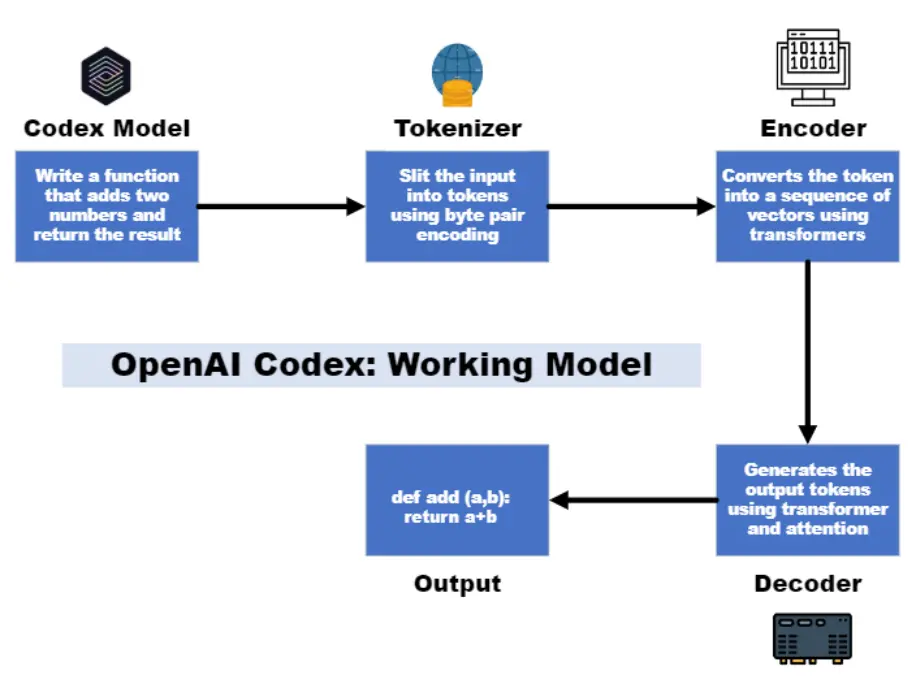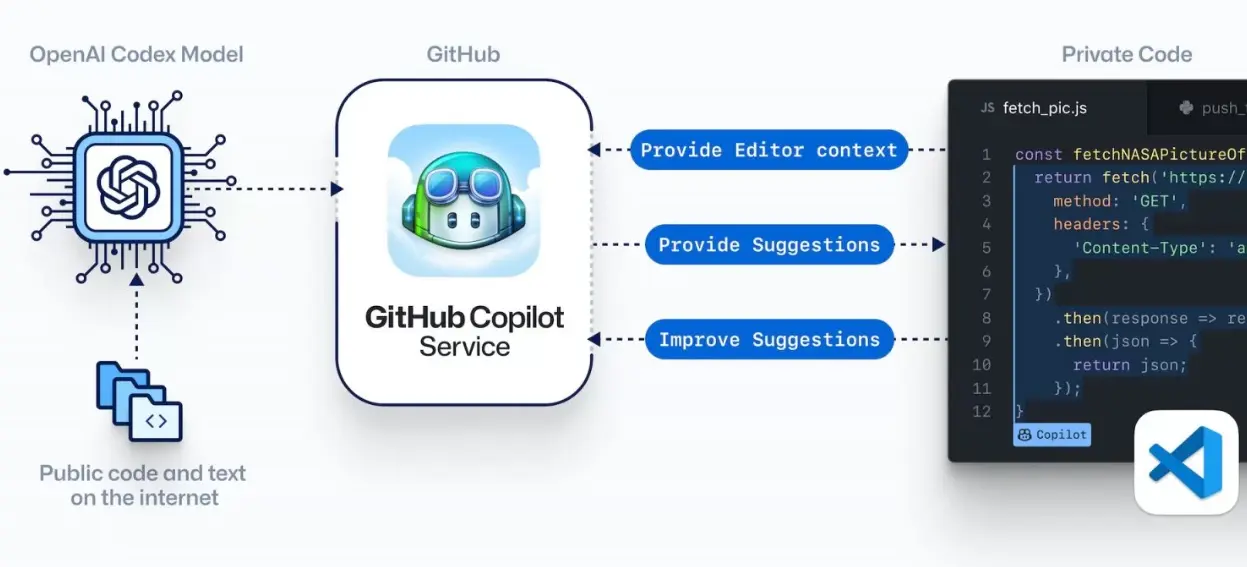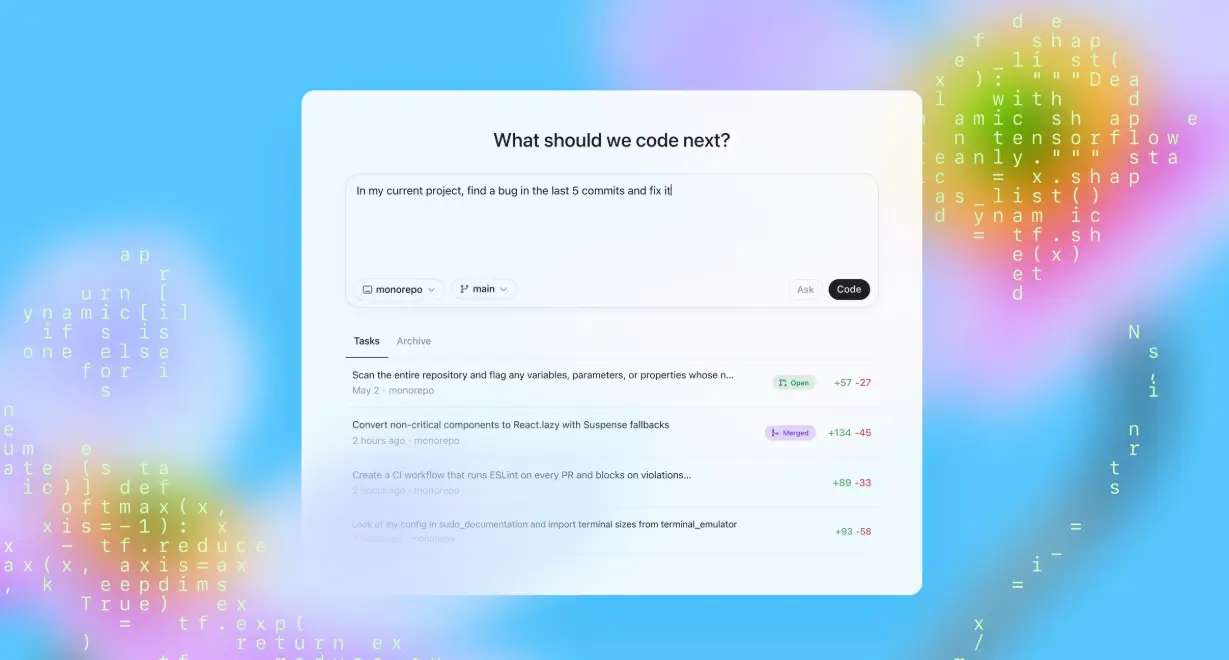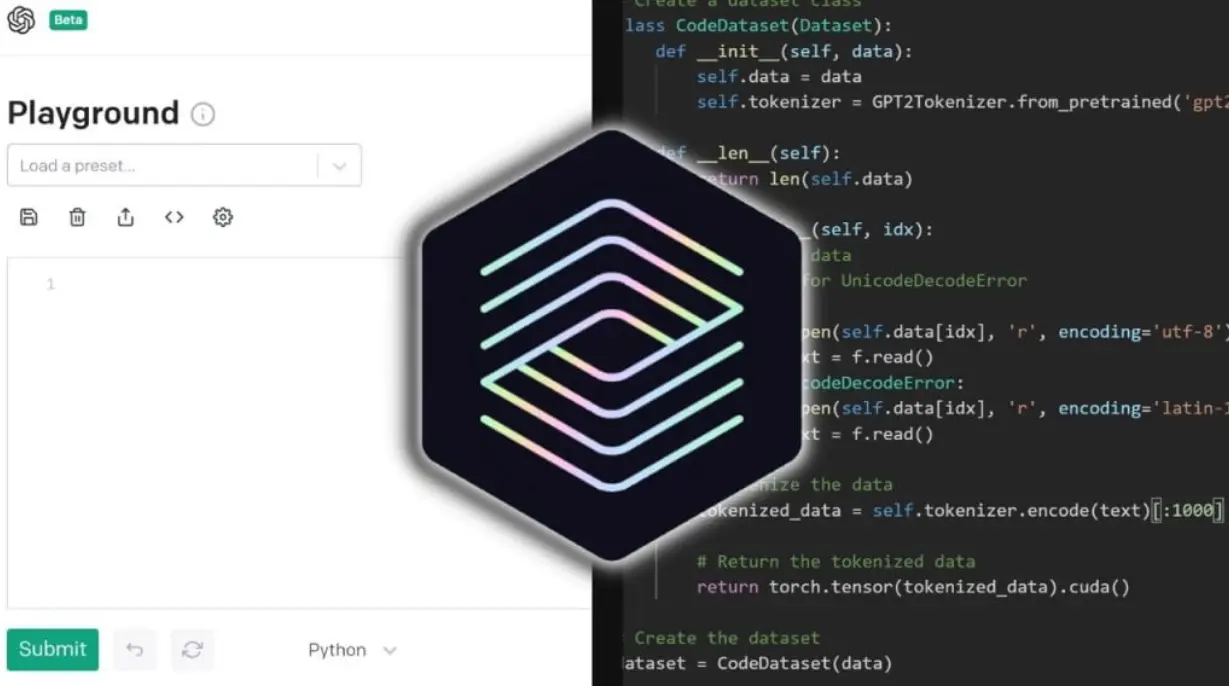In the ever-evolving landscape of software development, artificial intelligence (AI) has emerged as a transformative force. Among the forefront of this revolution is OpenAI's Codex, an AI-powered coding assistant designed to enhance developer productivity and streamline coding tasks. This article delves into the intricacies of OpenAI Codex, exploring its evolution, features, benefits, and its potential impact on the future of programming.
The Evolution of AI in Coding
From GPT-3 to Codex
OpenAI's journey into AI-assisted coding began with the development of GPT-3, a language model capable of generating human-like text. While GPT-3 demonstrated proficiency in natural language processing, its capabilities in code generation were limited. Recognising this, OpenAI fine-tuned GPT-3 to create Codex, a model specifically trained on a diverse range of programming languages and codebases.
Codex's initial iteration powered GitHub Copilot, an AI tool that provided code suggestions within integrated development environments (IDEs). However, the latest version of Codex, introduced in May 2025, represents a significant leap forward, offering more advanced features and greater autonomy in coding tasks.

Introducing OpenAI Codex
Launch and Availability
On 16 May 2025, OpenAI unveiled the research preview of Codex, a cloud-based software engineering agent designed to assist developers in various coding tasks. Initially available to ChatGPT Pro, Team, and Enterprise users, OpenAI plans to extend access to Plus and Edu users in the near future.
Core Functionality
Codex operates as an AI agent capable of performing tasks such as:
- Writing new features
- Fixing bugs
- Running tests
- Proposing code changes
- Answering questions about codebases
Each task is executed in a separate, isolated environment preloaded with the user's repository, ensuring safety and preventing unintended alterations to the original Codebase.
Technical Architecture
Powered by Codex-1
At the heart of OpenAI Codex lies the codex-1 model, a fine-tuned version of OpenAI's o3 reasoning model. This model has been optimised for software engineering tasks, trained using reinforcement learning on real-world coding scenarios. Codex-1 is designed to generate code that closely mirrors human style, adheres to instructions, and can iteratively run tests until successful outcomes are achieved.
Integration with Development Environments
Codex integrates seamlessly with ChatGPT's web interface, allowing users to assign coding tasks via natural language prompts. Developers can monitor Codex's progress in real-time, review its outputs, and incorporate changes into their local environments. Additionally, Codex can be guided by AGENTS.md files within repositories, providing instructions on navigating codebases, running tests, and adhering to project standards.
Key Features and Capabilities of Codex
Parallel Task Execution
Codex is capable of handling multiple tasks simultaneously, each within its own Sandboxed environment. This parallelism enhances efficiency, allowing developers to delegate various coding responsibilities to Codex concurrently.
Autonomous Code Generation and Testing
Beyond generating code snippets, Codex can autonomously run tests, identify bugs, and propose fixes. Its ability to iterate until tests pass ensures higher code reliability and reduces the manual effort required in debugging.
Natural Language Interaction
One of Codex's standout features is its proficiency in understanding and responding to natural language prompts. This allows developers to communicate with Codex in plain English, simplifying the process of assigning tasks and interpreting results.
Integration with GitHub
Codex can propose pull requests for review, streamlining the code review process. Developers can assess Codex's suggestions, provide feedback, and merge changes as appropriate, fostering collaboration between human and AI contributors.

Benefits for Developers
Enhanced Productivity
By automating routine and repetitive tasks, Codex allows developers to focus on more complex and creative aspects of software development. This shift can lead to increased productivity and faster project completion times.
Improved Code Quality
Codex's ability to run tests and identify bugs contributes to higher code quality. Its adherence to coding standards and best practices ensures consistency across codebases.

Accessibility for Novice Programmers
For individuals new to programming, Codex serves as an educational tool, providing code examples and explanations in response to queries. This can accelerate the learning process and build confidence among novice developers.
Collaboration and Knowledge Sharing
Codex facilitates collaboration by documenting its actions and providing explanations for its code suggestions. This transparency aids team members in understanding changes and fosters a culture of knowledge sharing.
Comparison with Previous Models
Codex vs. GPT Models
While GPT models like GPT-3 and GPT-4 are general-purpose language models, Codex is specifically fine-tuned for programming tasks. GPT models excel in generating human-like text but may lack the precision required for coding. In contrast, Codex is trained on a vast corpus of code, enabling it to generate accurate and contextually relevant code snippets.
Codex vs. GitHub Copilot
GitHub Copilot, powered by an earlier version of Codex, functions primarily as an autocomplete tool within IDEs. The latest iteration of Codex offers more advanced capabilities, including autonomous task execution, testing, and integration with development workflows, positioning it as a more comprehensive coding assistant.

Potential Challenges and Considerations
Reliance on AI
While Codex enhances productivity, over-reliance on AI-generated code may lead to a decline in developers' problem-solving skills. It's essential for developers to critically assess Codex's outputs and maintain active engagement in the coding process.
Security and Privacy
As Codex operates in cloud-based environments and accesses code repositories, concerns regarding data security and privacy may arise. Organisations must implement appropriate measures to safeguard sensitive information and comply with data protection regulations.
Handling Ambiguity
Codex's performance may be affected by ambiguous or poorly defined prompts. Clear and specific instructions are crucial to ensure accurate and relevant code generation.
Future Outlook
OpenAI's Codex represents a significant advancement in AI-assisted software development. As the technology continues to evolve, we can anticipate further enhancements in Codex's capabilities, including support for additional programming languages, improved contextual understanding, and deeper integration with development tools.
Moreover, the broader adoption of AI coding assistants like Codex may reshape the software development landscape, influencing educational curricula, professional training, and industry practices.
Conclusion
OpenAI Codex stands at the forefront of AI-driven software development, offering developers a powerful tool to automate tasks, improve code quality, and enhance productivity. By bridging the gap between natural language and programming languages, Codex not only streamlines development workflows but also democratizes coding, making it more accessible to a wider audience.
As we embrace this new era of AI-assisted programming, it's imperative to balance the benefits of automation with the need for human oversight, ensuring that the art and science of coding continue to thrive in harmony.